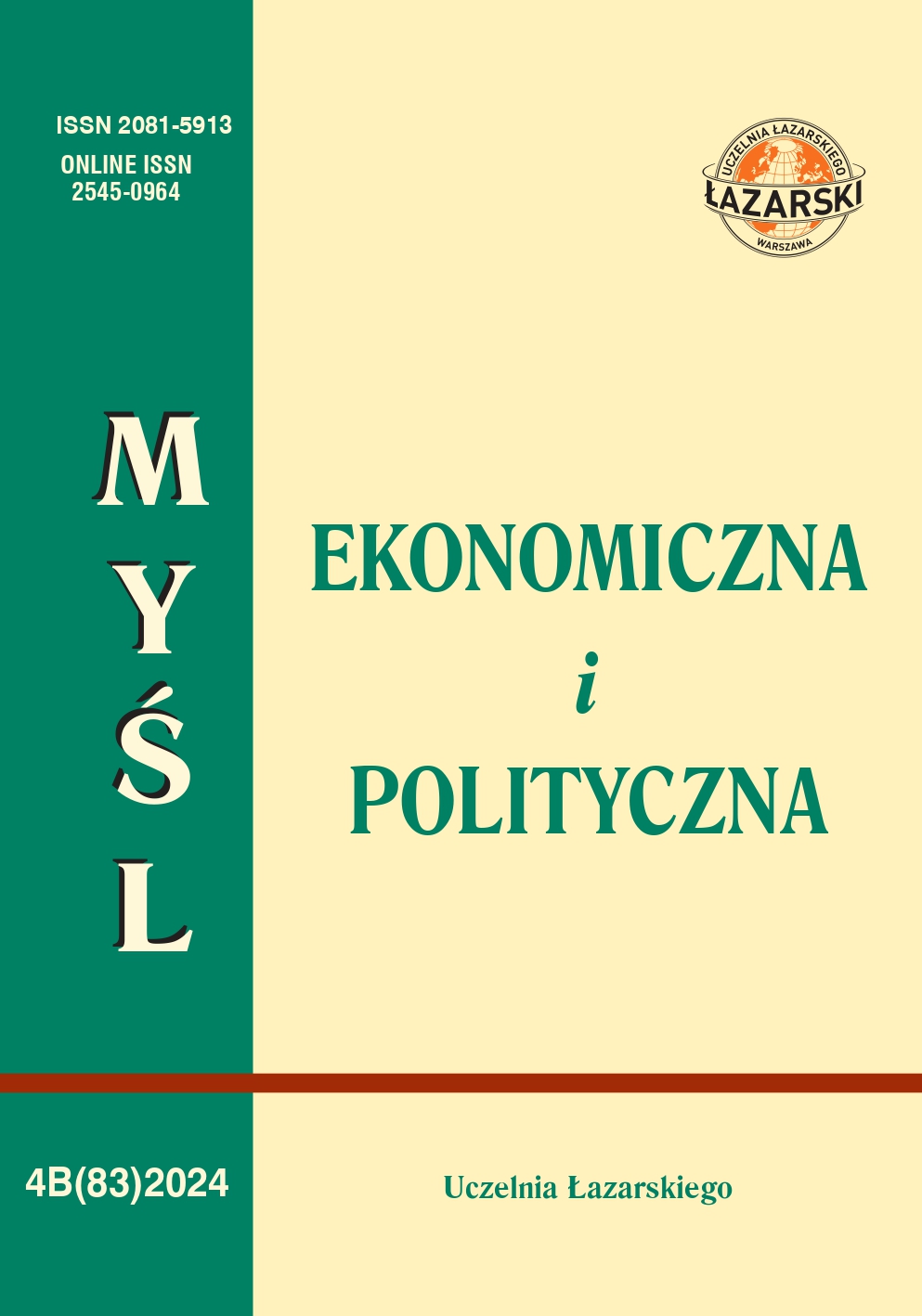Abstract
This article aims to assess the potential impact of the envisaged European Union (EU) federalisation on Poland’s economy and its international relations. The authors explore Poland’s readiness for this change and employ various research methods, including a review of existing literature, analysis of documents and reports from the European Commission, as well as political discourse analysis. Additionally, the authors delve into Germany’s perspective on EU federalisation and its influencing factors, providing illustrative examples throughout. The current situation in the European Union requires a retrospective view of the important events to better understand Poland’s economic and political situation. The Maastricht Treaty from 1992 abandoned the concept of economic cooperation of the independent countries which was stated under The Treaty of Rome in 1957 and introduced the idea of unification of the countries in economic, political and cultural dimensions to put a political integration forward. The value of this article is the evaluation of the federalisation impact on Poland’s further economic and political development. In the opinion of some authors due to the cultural and social differences among the member states of the EU, the German concept of federalism cannot serve as the model for the EU but rather as cooperative federalism. The evaluation of approved 245 changes to the Treaties, in the opinion of the authors, is rather centralism than federalism, where the power and the strategic competence are shifted from the EU member states to the Executive (currently: the European Commission).

This work is licensed under a Creative Commons Attribution-NonCommercial-ShareAlike 4.0 International License.
Copyright (c) 2025 Lazarski University

